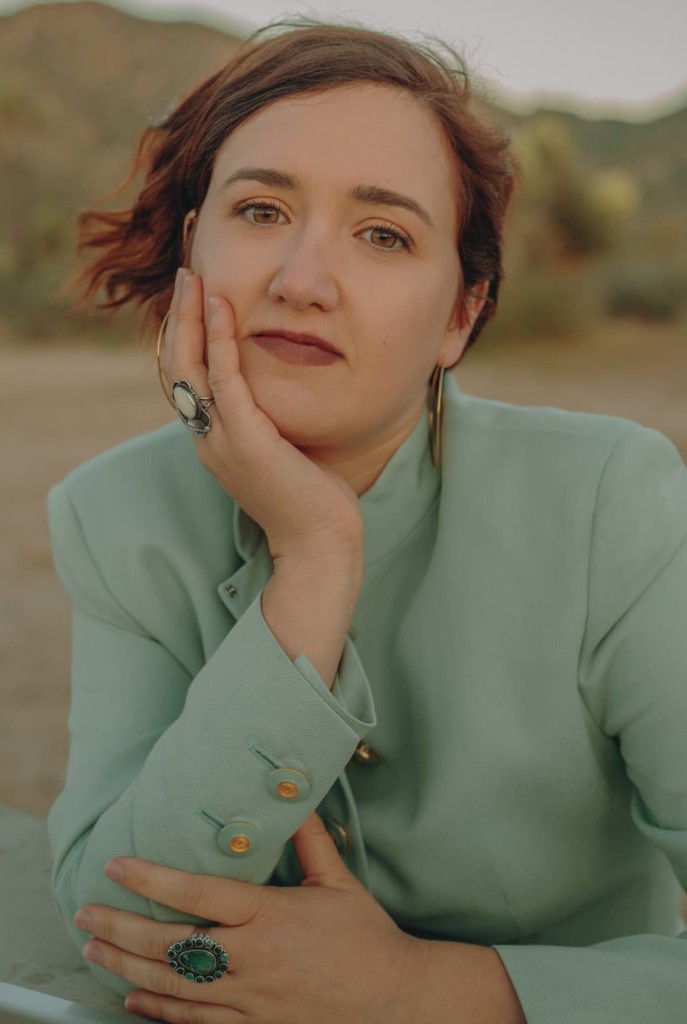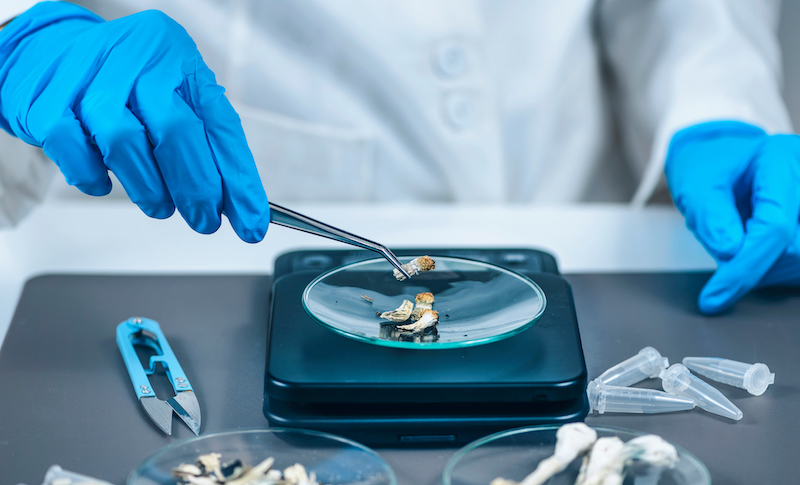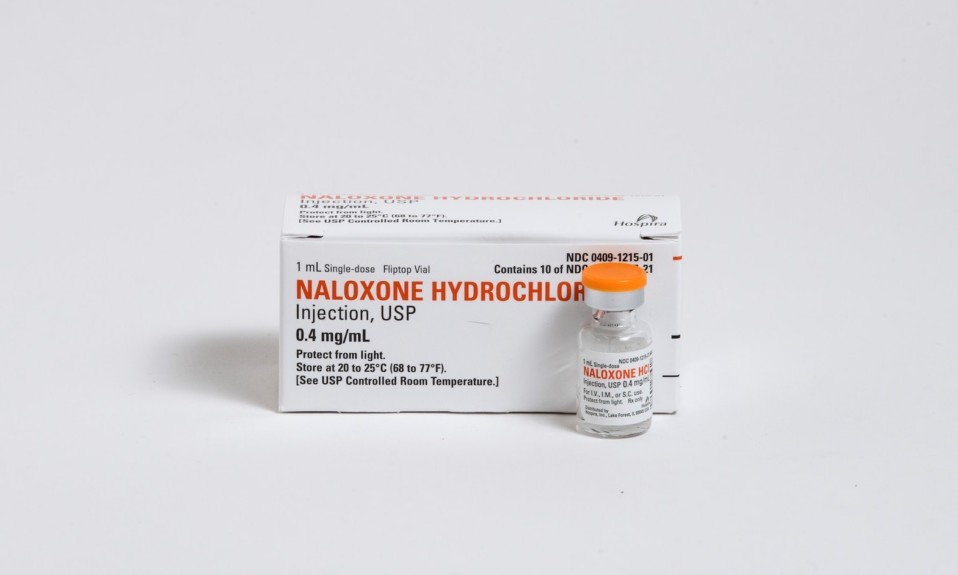As more research comes in and more cities move toward decriminalization, mind-altering substances like psilocybin are being embraced for their ability to treat mood disorders and even addiction
By Veronica L. Holyfield
The campaign Decriminalize Denver was busy in Colorado during the months, weeks and days leading up to the 2019 vote of Initiated Ordinance 301. It read, “Shall the voters of the City and County of Denver adopt an ordinance that would make the personal use and possession of psilocybin mushrooms the city’s lowest law-enforcement priority?” No one was asking to legalize the psychedelic substance, only to lower the consequence for consuming, growing or being in ownership of it. The aim was to decriminalize the Schedule I mind-altering substance to the point where it was effectively off the radar of the judicial system.
The measure was approved with 50.64% of the vote, and while the selling of the fungi still carries a felony punishment, the passage meant that law enforcement would no longer devote resources to prosecutions involving “magic mushrooms.”
We understood immediately that we had to rebrand the image of psilocybin and mushrooms, and really psychedelics in general, away from that stigma that existed from the ’60s and ’70s. We understood that, in many ways, we were going up against 15 years of propaganda around these compounds.”
—Kevin Matthews, Helix Consulting Group
Kevin Matthews, CEO of the pro-psychedelics Helix Consulting Group, has been on the ground level of decriminalizing magic mushrooms since the onset of the “plants are medicine” movement in Denver. He says that the No. 1 objective moving psilocybin from Schedule I to a lowest-level law enforcement priority was to alter the not-so-popular opinion of the drug.
“First and foremost, we understood immediately that we had to rebrand the image of psilocybin and mushrooms, and really psychedelics in general, away from that stigma that existed from the ’60s and ’70s,” he says. “We understood that, in many ways, we were going up against 15 years of propaganda around these compounds.”
Taking a pragmatic and professional approach, Matthews understood the potential risks of using psychedelics, and focused on the research that brought to light their ability to treat maladies like major depression and addiction. He and his colleagues compared and contrasted the information from works like the Global Drug Survey, which showed that alcohol-related hospital visits greatly outpaced those involving psychedelics. Matthews really gained traction, however, by focusing on decriminalization rather than legalization of psilocybin.
“I think a lot of people didn’t think we had a chance of succeeding in Denver, but by the grace of the divine and all the people who showed up on election day, we made it happen. It was the largest turnout in Denver’s municipal election history in 30 years,” Matthews says.
The Rise of Psychedelics
Since Denver’s lowering of penalties surrounding psilocybin, other cities have followed suit, and in 2020 Oregon became the first state to legalize psychedelic mushrooms. Slowly, the country is embracing psilocybin, and psychedelics in general, as an agent that can combat mood disorders and addiction, and as a means for spiritual exploration.

The media company and education platform DoubleBlind covers stories about the rapidly growing psychedelics movement, acting simultaneously as a cultural publication, a news reporting company and a how-to mushroom resource. Co-founder and CEO Shelby Hartman talks about the role that psychedelics have had in her own life and why she’s so passionate about breaking down the barriers surrounding them.
“I started tripping when I was 18, and they became a really important part of my spiritual path, and really just informed who I became, who I am,” Hartman says. “They’ve always really fascinated me, and as a reporter, they’re a really interesting opportunity to talk about so many of the most [pressing] issues that we’re facing in our society, whether it be the pharmaceutical process, mass incarceration or mental health.”
The Therapeutic Benefits
In her reporting, Hartman has been keeping a close eye on studies of psilocybin. “For example,” she says, “if someone goes into a clinical trial aiming to overcome nicotine dependency, then we’re finding a direct correlation with the depth and profundity of their mystical experience and how successful they actually are in weaning off of nicotine, or quitting nicotine altogether following their psychedelic experience.”
Researchers are noting that the use of psychedelic therapy, sometimes called microdosing, leads to increased suggestibility, making subjects are more open-minded and responsive to positive cues given by a therapist. When it comes to treating brain disorders such as depression and trauma such as post-traumatic stress disorder (PTSD), scientists are discovering neurotransmitter changes from psychedelics that mirror those of pharmaceuticals and produce sustained positive effects.
The psilocybin trajectory is closely mirroring that of the cannabis movement. The public buy-in is slow but steady.”
Just this month, The New York Times reported that veterans “have become leading advocates in the drive to legalize psychedelic medicine, which they credit with helping ease the post-traumatic stress, anxiety and depression that are often tied to their experiences in the military.” Earlier this year, the American Psychological Association published an excerpt from the journal Psychology of Consciousness: Theory, Research, and Practice, stating that “mystical experience and psychological insights, two consistent phenomena of the psychedelics experience, could operate a shift from self-rumination toward self-compassion.”
The psilocybin trajectory is closely mirroring that of the cannabis movement. The public buy-in is slow but steady. But as long as the federal government regulates the possession, consumption and cultivation of magic mushrooms as illicit, research is somewhat bottlenecked. Nevertheless, Matthews foresees sweeping decriminalization, optimistically as soon as 2026. That, however, is only step one in his mind.
“I think if we’re going to look at drug policy in general, we don’t want to look at psilocybin only in terms of decriminalization,” he says. “If we’re going to look at that federal drug policy in general, we need to create therapeutic models. In TheHill/HarrisX poll that came out [earlier in 2021], 35% of Americans believe that psychedelics have medical value. Given that perspective, if we really take our time to educate the general public as much as possible, we could have a groundswell of support for not just psychedelic decriminalization but potentially all drug decriminalization.”
Top photo: Adam Flockemann














